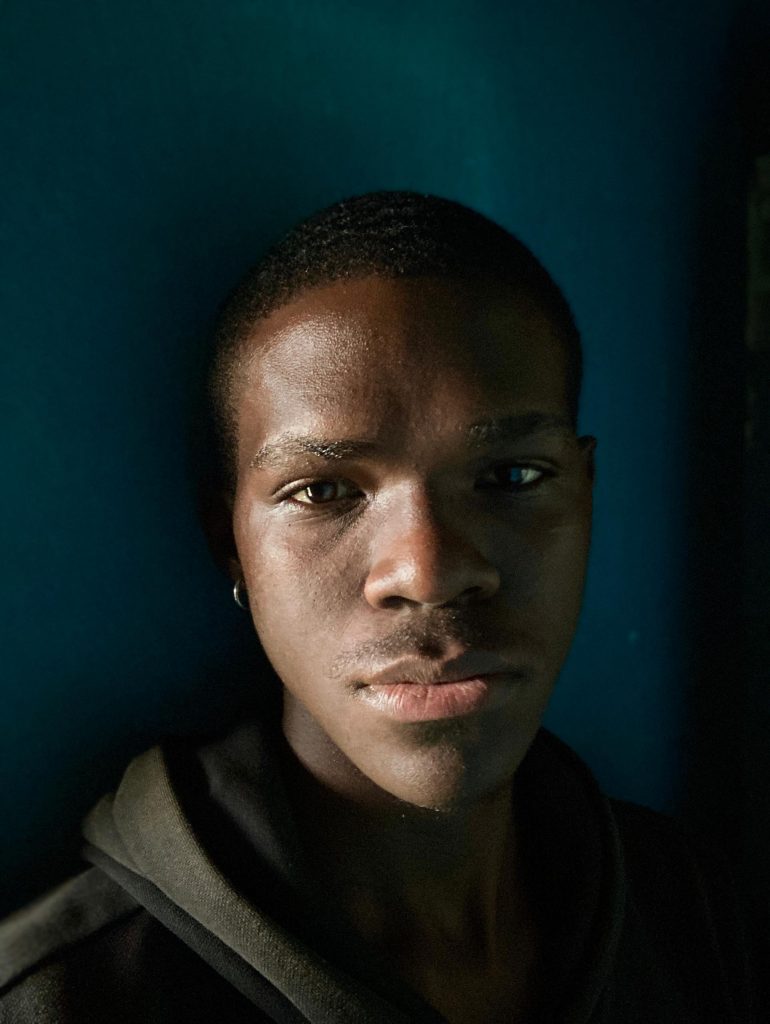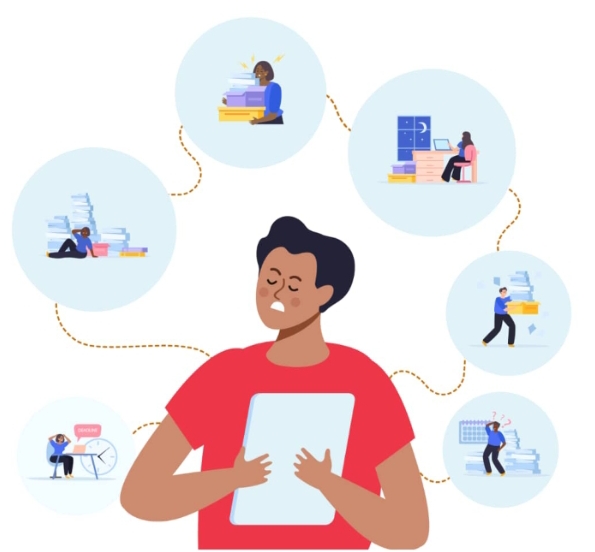A Version of Myself

by Mahbubat Salahudeen
Light opens up on the spiegeltent, a smallish vintage carnival tent that creates an intimate space between the act and the audience. My interest was piqued by the TV listing a show by the people of Akan, a troupe of young female indigenous dancers from Ghana. I have never heard of them but I was intrigued by the energy bursting from the silver screen of the LG TV fastened to the stucco wall of the dimly lit living room.
With no real idea what to expect, the lights fell and the show began. Beaming open faces with cheeky grins that displayed teeth as white as piano keys, two or three of them displaying natural gaps between upper two front teeth. The dancers wore knee level clothings and also had beads above their calves, at the ankles and around their waists. They were dark in complexion and the patterns on their bodies made them darker. For a time they moved round and round swaying to the rhythm in a half-stoop. Suddenly, the soloist stopped and the instruments took over completely. The dancers bent low, their faces were as rigid as masks. Moving only their waists and every bit of their energy seemed to be concentrated there, their full breasts vibrating in unison.
But somewhere in the middle of the show was a solo dance performance that made words superfluous. First there was a whole troupe, then a solo dancer. So in an already intimate setting my focus was on one and not a handful of dancers. Then there was a contrast with the acts and music to that point, a ride that was getting more wild. With a jolt, this solo performance was intense, serious and made me sit up, and the troupe danced out of the arena — a premeditated dance plan I suppose. The beauty was in the body movement especially the presence of the dancer — the grace, the control, and tenderness — inviting me in close to tell a story.
Her arms leave her body as the music grows louder. Eyes drunk on fire, her lips kiss the threshold of liberty as she dances her inhibitions away. Her fingers click to the right and click to the left. Her elbows gracefully tear through the air in perfect rhyme with her feet, which trace a curve no menace can surpass. She is for herself today!! Her feet now hit the floor, in a boisterous cry for all that was denied. As one arm is outstretched, her waist jerks outward vivaciously. It seemed to reject all the silent judgement the world has offered her. The other arm follows suit, then another jerk of her bumblebee waist.
Her feet explore the arena as she slides across with poise. She stops at the end of the platform and gazes at them, the mass of onlookers. Appraisers.
I admit that I feel a kinship with my African community, whether I am watching Goge Africa on the silver screen or listening to Afrobeats on Spotify. In most cases I go out of my way to show support for them even if Mum claims, “It’s a poverty riddled place we are lucky to not be a part of.” What makes my belly churn sometimes is the urge to shoulder the responsibility of representing my Community and on some cases I ponder over the feeling of not being “African enough.” I confess, I am like a broomstick detached from its bundle, a lone wolf stripped from its pack.
I watched the coloured images on the silver screen, and mum joined me soon enough. It was Friday night, I watched as my mum put on makeup to head for a girl’s night out with some friends from work. Her once-upon-a-time jet black hair balding on the sides, giving away to strings of brown. She held it back in a ponytail as I watched her put on her makeup.
“They look beautiful.”
“Hmm,” she turned around to watch the women on the TV.
“Oh them.”
She responded with a smile that didn’t reach her face.
“Can I be more like them ?”
She paused mid-move of the lip stick, turned to me and smiled.
“Honey, every culture has its own notion of beauty. They have theirs and we have ours. They are beautiful like them and we are pretty just like us.”
“But they are us.”
Mum gave a sort of smile that I had learned was a mix of, “I will tell you about it when the time is right” & ” It’s incredibly complicated. You cannot understand.”
“Oh honey,” she pulled me close to her, and bundled me in a hug. She smelt of a queer but not unpleasant mixture of strong perfume and oranges. “Don’t worry about such things, hmm. Now go watch TV and let me get fully ready. You don’t want mum to poke her eye out with her eyeliner.”
I headed back to see if the women were still on TV when mum called out, “Honey, you don’t mind changing the channel.”
I checked to see if Rollin’ on Rails had started yet or if it was still one of those stupid reality shows I won’t watch even if it was staged in my backyard.
On multiple occasions, I have been harassed publicly and online by some white people quoting the “N” word in sentences and telling me to go back to where I come from. Do I get to explain that I’ve been here my whole life?
I can still wonder if mum knew I would switch the channels to once again see the African women when she was out and I am home alone.
Or that I would rummage in her cupboard until I found it, — a pair of scissors from where she carelessly left it, — and carve out my hair to get the Afro-like hairstyle of the African women.








